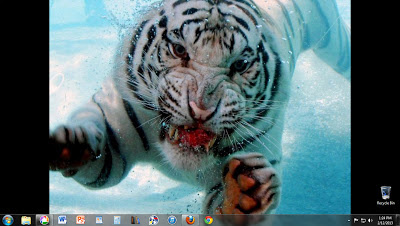Journalists and media students everywhere owe Conor Friedersdorf, a staff writer at The Atlantic, a HUGE debt of gratitude.
Friedersdorf, who is the founding editor of The Best of Journalism, a newsletter devoted to exceptional non-fiction (you can subscribe for $1.99 a month), kept his own running list of exceptional non-fiction throughout 2010 for the newsletter. The result, he says, is his third annual Best Of Journalism Awards — "America's only non-fiction writing prize judged entirely by me."
Friedersdorf says he couldn't read every worthy piece published in 2010, "but everything that follows is worthy of wider attention". And I agree wholeheartedly. Just take a look at his list — NEARLY 100 FANTASTIC PIECES OF JOURNALISM — which he has divided into ten categories:
1. The Art of Storytelling
2. Crime & Punishment
3.Sports & Leisure
4. Science, Religion & Human Nature
5. On Birth, Death, & The Afterlife
6. Multimedia Matters
7. The Innovative & Creative
8. Food
9. Profiles
10. This Is A Business
There is also a sub-category: Bloggers of the Year.
4. Science, Religion & Human Nature
5. On Birth, Death, & The Afterlife
6. Multimedia Matters
7. The Innovative & Creative
8. Food
9. Profiles
10. This Is A Business
There is also a sub-category: Bloggers of the Year.
I can think of no better way to spend a day productively than by diving deep into this treasure trove.
Here are my favourites (what are yours?):
- MOTHER JONES
Wealthy Western couples are flocking to India, where the medical tourism industry is offering the best deal on a vital commodity: wombs.
-----
- THE ATLANTIC
"The author found himself utterly unprepared for one of life's near certainties — the decline of a parent." And then he discovered that he wasn't alone.
-----
"Modern medicine is good at staving off death with aggressive interventions — and bad at knowing when to focus, instead, on improving the days that terminal patients have left."
- THE NEW YORKER
"Modern medicine is good at staving off death with aggressive interventions — and bad at knowing when to focus, instead, on improving the days that terminal patients have left."
-----
- THE PARIS REVIEW
The aged master, arguably the world's best non-fiction writer, reflects on his career and his method.
-----
An insider's look at what it's like to write for glossy magazines. You'll envy and pity the writer by the end.
- THE AWL
An insider's look at what it's like to write for glossy magazines. You'll envy and pity the writer by the end.
-----
- ESQUIRE
The defining portrait of America's most famous movie critic, the cancer that cost him his jaw, and the unexpected turn his career has taken after all these years.
- Thank you, Nilofer D'Souza (Class of 2009), for sending me the link.
- In his introduction to the list, Conor Friedersdorf refers to Byliner, "a promising new site dedicated to publishing and sharing feature-length nonfiction", where his annual awards dating back to 2008 are soon going to have a permanent home. I checked it out — and my mouth began watering... again. What an amazing site! Byliner's tagline reads "Discover & discuss great reads by great writers". How apt! Check out Byliner today.
UPDATE (July 24, 2016): I discovered just now that last year Conor Friedersdorf had followed up the list discussed above with "Roughly 100 Fantastic Pieces of Journalism", which was published in The Atlantic on July 23, 2015. Read this new list in its entirety here.

































